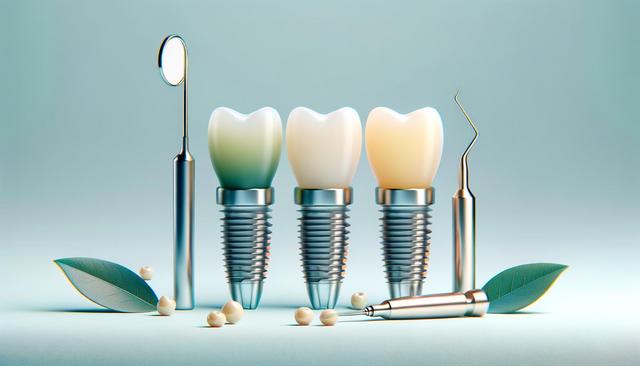What Are Dental Implants?
Dental implants are a popular solution for individuals who have lost one or more teeth. They consist of a titanium post surgically inserted into the jawbone, which acts as an artificial tooth root. A custom-made crown is then attached to this post, creating a natural-looking and functional replacement. Unlike dentures, implants are fixed in place and provide a stable, permanent solution. They are designed to blend seamlessly with your existing teeth, improving both aesthetics and oral health. Choosing dental implants can significantly enhance speech clarity, chewing efficiency, and overall comfort.
Benefits of Choosing Dental Implants
There are numerous advantages to opting for dental implants when compared to other tooth replacement methods. Some of the most notable benefits include:
- Improved appearance: Dental implants look and feel like your natural teeth.
- Enhanced comfort: Because they become part of your jawbone, implants eliminate the discomfort of removable dentures.
- Durability: With proper care, implants can last many years, often a lifetime.
- Improved oral health: Unlike bridges, implants do not require reducing other teeth, preserving your natural tooth structure.
Additionally, dental implants contribute to better bone health by stimulating jawbone growth and preventing bone loss, which often occurs after tooth loss. They help maintain the natural shape of your face and smile, offering a solution that looks and feels natural.
The Dental Implant Procedure Explained
The process of getting dental implants typically involves several steps and can span a few months to ensure optimal results. Here’s a general overview of what to expect:
- Initial consultation: Your dentist evaluates your oral health and determines if you are a suitable candidate for implants.
- Implant placement: The titanium post is surgically inserted into the jawbone. Healing time is required for osseointegration, where the bone fuses with the implant.
- Abutment placement: After healing, an abutment is attached to the implant to hold the crown.
- Crown placement: The final step involves fitting a custom-made crown onto the abutment, completing your smile.
Throughout the procedure, your dental team will provide detailed instructions on aftercare and follow-up appointments to ensure the implant heals properly and integrates well with your jawbone.
Who Is a Suitable Candidate for Dental Implants?
Not everyone is an immediate candidate for dental implants. Certain factors influence eligibility, including:
- Healthy gums and sufficient bone density to support the implant
- Good overall health, as certain chronic conditions may affect healing
- Non-smokers, or those willing to quit, as smoking can impede the success of implants
If bone loss has already occurred, bone grafting procedures may be recommended to build up the jawbone. A comprehensive evaluation, including X-rays or 3D imaging, helps your dental professional develop a personalized treatment plan tailored to your specific needs.
Caring for Your Dental Implants
Maintaining dental implants is similar to caring for natural teeth. Good oral hygiene is essential to ensure the longevity of the implant and overall oral health. Here are some care tips to keep your implants in excellent condition:
- Brush at least twice a day using a soft-bristle toothbrush
- Floss daily to remove plaque and food particles around the implant
- Use an antibacterial mouthwash to reduce the risk of infection
- Visit your dentist regularly for professional cleanings and check-ups
Avoid chewing on hard objects like ice or hard candies that could damage the implant crown. With the right care and maintenance, dental implants can continue to provide a strong, beautiful smile for many years.
Conclusion: Is It Time to Consider Dental Implants?
Dental implants offer a reliable and effective solution for replacing missing teeth, restoring both function and appearance. For individuals seeking a long-term option that closely mimics the look and feel of natural teeth, implants can be a worthwhile investment. Consulting with a qualified dental professional is the first step toward determining if dental implants are right for you. With proper care and a commitment to oral health, you can enjoy the benefits of a revitalized smile that boosts your confidence and improves your quality of life.






